Photographs: Reuters
A French researcher visiting India during the terrorist attack in Mumbai in November 2008 was intrigued by local media reports that constantly harped on how many foreigners were killed and how many still remained hostages, distinguishing these from Indians. She found the explicit and implicit importance given to foreigners in the media coverage extraordinary and noted that this would be unacceptable in any European country. In the Indian psyche this appears normal. This is reflected even in regular news coverage.
Advertisements meant to attract foreign tourists rub this point in by contrasting the Indian sense of hygiene or behaviour in public with that of people from overseas. It is a pity that the exhortation to change our behaviour comes not because this is desirable for individual and community health, but because it would otherwise hurt the sensitivities of our guests. This plea and the underlying principle are accepted without ado. It is in this context that the lapses, inefficiencies and corruption in organising the Commonwealth Games become a 'catastrophe' and a 'national disaster'.
Text: Amitabh Kundu
We must keep our fingers crossed
Image: Army rebuilds the collapsed overbridgePhotographs: Reuters
There is a genuine risk that Indian hospitality extended to our guests, despite the last-minute engagement of the highest authorities in the land, may yet leave many deficiencies. Further, when the army is called in for crisis management and to do the job of low-level municipal functionaries or that of labourers in a construction company, it is an admission of institutional failure. Maybe a few more ceiling collapses or discovery of cobras in the lawns are still to come.
However, given our alert media, we can hope to be updated on a minute-to-minute basis. We must, nevertheless, keep our fingers crossed and pray that the frequency does not mount significantly, resulting in further withdrawal of athletes or, God forbid, cancellation of the Games mid-way.
We will fail miserably in meeting Millennium Development Goals
Image: A student holds his free mid-day meal in a primary schoolPhotographs: Jayanta Shaw/Reuters
All of us, however, know for sure that we will fail miserably in meeting the United Nation's Millennium Development Goals of bringing down the infant and maternal mortality rates to a third and a quarter respectively by 2015, compared with 1990.
Thankfully, these have not received much attention, either in the national or global media. India's proportion of malnourished children, twice as high as its 17 per cent share of the global population, is unlikely to put us to as much shame as the organising committee and all others associated with the mega event has forced us into.
The point is not to say that there is an excuse for the organisers' miserable performance, or that the cases of corruption and inefficiency can go uninvestigated or unpunished. It is alright to hold that we should not have accepted responsibility for the Games in the first place -- and a large majority would subscribe to this point of view.
Focus on the Indian performance at the Games
Image: Cultural programmes being held at the VillagePhotographs: Reuters
However, having accepted it, there can be no excuse for the level of performance that we have put up so far. This certainly does not match our capability of achieving 9 per cent GDP growth for a record period of five years consecutively and bouncing back from the global economic crisis in the shortest possible time.
The seriousness of the failure notwithstanding, we must keep our questions and criticisms of the organisers on hold for a couple of weeks more, and concentrate our entire effort on taking care of the existing deficiencies. Maybe we should give some attention to the Indian performance at the Games, although by now it has become a matter of no one's concern.
China is much better equipped than India
Image: Sweepers cleaning a CWG venuePhotographs: Reuters
Possibly, our 'success' in organising the event will not be comparable to that of China at the 2008 Olympics. Economist Pranab Bardhan has argued quite convincingly that China is much better equipped than India in developing a long-term perspective and moving towards its goals with unity of vision and purpose. In India it is difficult to have a political consensus on any matter. There has been none on the Games -- even within the rank and file of the ruling coalition -- which is also a part of the problem.
It is possible to argue that the difference in socio-political systems between China and India puts us at an advantage, as we have been able to discuss the day-to-day issues pertaining to management of the Games in a free and frank environment.
Corruption and bureaucratic hurdles are systemic in India
Image: Homeless children under a flyover in New DelhiPhotographs: Reinhard Krause/Reuters
But that is hardly an excuse for the serious problems of health and hygiene, reported in the residential and sporting complexes. Bardhan remarks that we are good at muddling through and finding short-term solutions to problems by working out negotiated settlements among vested interests. That should keep our hopes alive. We do order our army to step in, but only to build bridges and not for using tanks to restore law and order.
Corruption and bureaucratic hurdles are systemic in India. A former prime minister had given the figure of 85 per cent as the cost of reaching beneficiaries through development programmes. This figure has not been questioned by anyone, and not many seem to be bothered about it. Corruption in these programmes results in primary health centres not having medicines and testing facilities, and thousands of rural children dying as a consequence. Bureaucratic inefficiency leads to a majority of childbirths still taking place outside the institutional system, resulting in little decline in maternal mortality over the last few years.
Let us hope that our researchers, media and political leaders wake up to these corruption- and inefficiency-induced problems, with equal seriousness. We must nonetheless urge local managers of sporting and residential complexes to employ a few more cleaners and snake charmers. Unemployment among them is very high and their wages are very low.

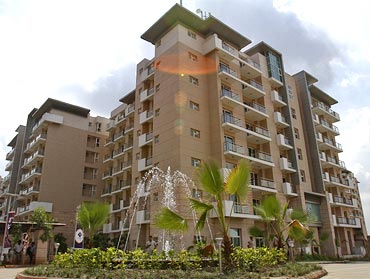

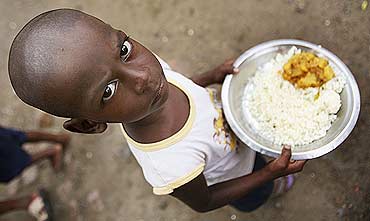
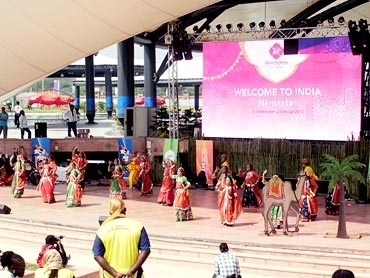
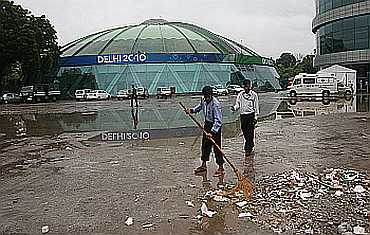
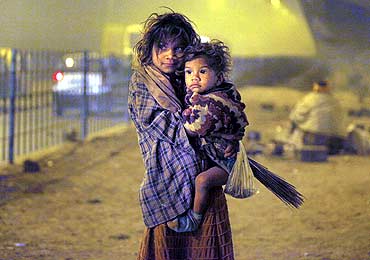
article